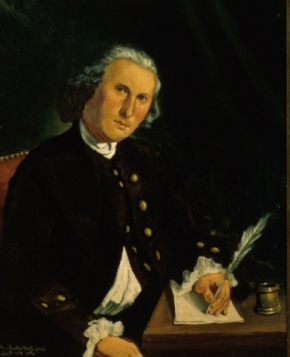You are here
Circuit Court Opinions:
Associate Justice Samuel Chase, Grand Jury Charge (1803)

Grand Jury Charge (C.C.D. Md. 1803) [Middle Circuit] (printed in 14 Annals of Congress 673 (1805))
In 1804, the U.S. House of Representatives voted to impeach Justice Chase. Some of the eight articles of impeachment focused on Chase’s behavior during certain politically charged trials, such as the Sedition Act prosecutions and the second treason trial of tax resister John Fries. One of the articles, however, was based on the concluding portion of a grand jury charge Chase had made in Baltimore, Maryland, the prior year. Chase, an ardent Federalist, made remarks that were highly partisan in nature. First, Chase criticized Republicans in Congress for repealing the Judiciary Act of 1801 and thereby abolishing the act’s sixteen circuit judgeships, most of which had been filled by President John Adams. As a result of the repeal, claimed Chase, “the independence of the national judiciary, is already shaken to its foundation.” He went on to decry a recent amendment to the Maryland state constitution establishing universal suffrage. Allowing those without property to vote, said Chase, would “certainly and rapidly destroy all protection to property, and all security to personal liberty” and turn the republic into “a mobocracy.” The charge was immediately the subject of controversy and contributed to calls for Chase’s impeachment. At his trial in the U.S. Senate, Chase asserted that he could be removed from office only for an indictable crime and not for improper conduct on the bench. This view seemingly won out, as several Republicans joined the Federalists in voting not guilty, and none of the articles of impeachment received the necessary two-thirds vote for conviction. The incident reflected the intense partisanship of the early nineteenth century as well as the freewheeling manner in which many judges spoke to grand juries at the time.
